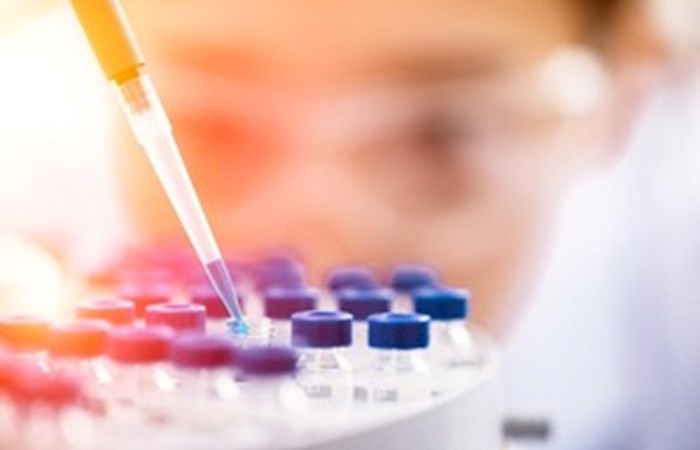Medicines Healthcare Products Regulatory Agency

The safe manufacture of potentially life-saving stem cells through innovative automation and machine learning, could give patients faster access to stem cell treatments in the future.
Today, experts and UKSCB alumni are meeting for a special event at the Medicines and Healthcare products Regulatory Agencys South Mimms Laboratories to celebrate two decades of supporting innovation in research and in the clinic, and to look to the future of advanced therapeutics.
Human embryonic stem cells have the potential to help parts of the human body repair and regenerate following illness and disease. They could have applications in a vast range of diseases such as blindness, blood cancer and heart disease.
With support from national partners at the Medical Research Council (MRC), Biotechnology and Biological Sciences Research Council (BBSRC) and National Institute for Health Research (NIHR), the UKSCB provides high quality stem cells for world-leading research, with 30 stem cell lines available for clinical application. This makes the UKSCB the largest source of clinical grade human embryonic stem cells in the world.
Globally, the UKSCB has supplied stem cells to 25 different countries for research and clinical applications, with 54% of the stem cell lines requested in 2022 being of clinical grade, which has risen year on year.
Dr Lee Carpenter, Head of the UK Stem Cell Bank, said:
Stem cell treatments are difficult to manufacture because its labour intensive and expensive, making their availability to help patients limited.
As we celebrate 20 years of the UK Stem Cell Bank, we look to automation to alleviate the manual aspects of laboratory working with stem cells and to scale up manufacturing, without compromising on our safety and quality standards.
This ultimately means patients could get faster access to more cost-effective, safer stem cell therapies to treat or prevent their condition or disease.
Dr Marc Bailey, MHRA Chief Science and Innovation Officer, said:
This isnt the stuff of science fiction. Our unique asset at the MHRA, the UKSCB, means we will continue to be at the forefront of the latest scientific developments so that we can help bring safe and effective treatments to the people who need them most.
At a time where medicines to slow or stop degenerative diseases, such as Parkinsons disease, are becoming a reality, our work is helping research go even further, curating and supplying the foundation of cell-based therapeutics, which have the potential to treat, and one day, even cure these diseases.
The UKSCBs future is diverse and exciting and, much like the cells we curate, there are endless possibilities for us to support research and clinical advances in the UK and around the world.
Twenty years ago, the MHRAs UKSCB was established to curate and distribute all human embryonic stem cells created in the UK.
Over the past two decades, the UKSCB has become renowned for being at the centre of advanced therapeutics - medicines for human use based on genes, tissues, or cells - in the UK, as well as globally.
It is recognised around the world as a leading repository, with over 180 different human embryonic stem cell lines used for research and development, with many of these that could be used for treating patients.
The UKSCB has recently completed a trial using a robot that grows stem cells to see whether they meet the standards needed for use in the manufacture of potentially life-saving treatments compared with our highly skilled experts.
The CellQualiaIntelligent Cell Processing System at the MHRA South Mimms Laboratories was, at the time, the only one in the world outside of Japan, where it was developed. This was a successful trial that demonstrated automation of stem cell production is possible, and now other automation systems are being considered in future studies comparing automation and manual production.
Notes to Editors
-
The UKSCB is the UKs repository for the storage and regulation of stem cells. Further information about the UKSCB can be found here.
-
A stem cell line is a population of cells that all descend from a single donor and are grown in a lab. Under appropriate conditions, cells in a stem cell line keep growing but dont differentiate into specialised cells. Ideally, they remain free of genetic defects and continue to expand, which can be frozen for storage or shared with other researchers.
-
Stem cell derived therapies, also known as regenerative medicine, promotes the repair of diseased, dysfunctional or injured tissue by providing specialised cells that can be derived from stem cells i.e. neurons, cardiac and immune cells.
-
The Medicines and Healthcare products Regulatory Agency (MHRA) is responsible for regulating all medicines and medical devices in the UK by ensuring they work and are acceptably safe. All our work is underpinned by robust and fact-based judgements to ensure that the benefits justify any risks.
-
The MHRA is an executive agency of the Department of Health and Social Care.
-
For media enquiries, please contact the newscentre@mhra.gov.uk or call 020
